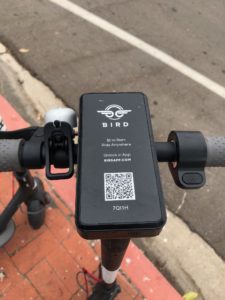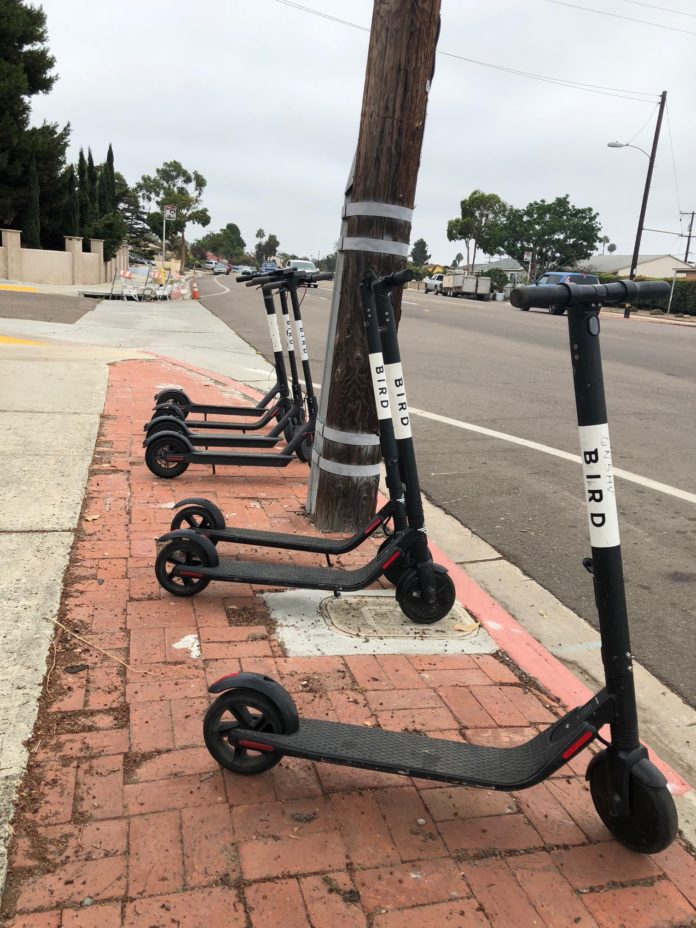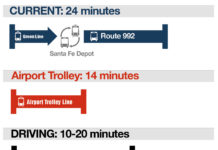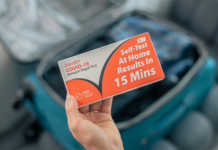pr With the goal of encouraging more transportation choices and improving the quality of life in neighborhoods, Mayor Kevin L. Faulconer today proposed a regulatory framework for dockless scooters to address safety concerns while allowing the nascent technology to continue operating in San Diego in a more responsible way.
“The rapid evolution of this industry is evidence of the popularity of dockless mobility devices as great options for folks who would like to leave their car at home,” Mayor Faulconer said. “As with many disruptive new technologies, there are issues that need to be addressed. First and foremost, public safety is our top priority and that will be reflected in these common-sense regulations.”
Mayor Faulconer’s proposed policies are focused on motorized scooters – the predominant mobility device used across the city – but are designed to include other types of dockless devices as the industry continues to evolve. The regulatory framework cover five primary areas – limiting maximum speed in designated zones, rider education, data sharing, operating fees, and legal indemnification for the City of San Diego.
The City Council’s Public Safety and Livable Neighborhoods (PS&LN) Committee will hold a 9 a.m. hearing on the proposed framework on Oct. 24.
“I’m pleased to have worked with Mayor Faulconer to develop important safety standards for the protection of scooter riders and pedestrians,” said City Councilmember Lorie Zapf, a member of the PS&LN committee. “My goal has always been to slow down the speed of the scooters and address safety concerns. With this proposal I feel confident that we will see changes for the better.”
Limiting Speed: Using geofencing technology, operators will be required to slow their devices down to eight miles per hour in designated high-pedestrian traffic zones around the City, including:
- Boardwalks in Mission Beach, Pacific Beach and La Jolla beach areas
- Downtown Embarcadero
- Promenade behind the San Diego Convention Center
- Martin Luther King Jr. Promenade Downtown
- Balboa Park
- NTC Park
- Mission Bay Park
City Indemnification: Each operator will be required to indemnify the City from liability claims and each will need to hold a liability insurance policy.
Rider Education: Prior to each use, companies will be required to educate riders of local and state vehicle and traffic codes and the cost of a citation for violating those laws. Each device also will need to be clearly labeled “Riding on Sidewalks is Prohibited.”
“Circulate San Diego supports thoughtful regulations in San Diego in order to ensure the continued availability and safe use of dockless scooters,” said Maya Rosas, Policy Director for Circulate San Diego. “The scooters are game changers that provide new mobility options, and with safe infrastructure they will help San Diego meet its Climate Action Plan and Vision Zero goals.”
Data Sharing: The operators will provide the City with detailed monthly reports that will be useful for Climate Action Plan monitoring and mobility planning, including but not limited to:
- Deployed Device Data, including fleet size and utilization rates
- Trip information, including start/end points, routes, distances and duration
- Parking information
- Reported incidents and actions taken
- Reported obstructions/hazards and actions taken
- Maintenance activities
Fees: Each company wishing to operate within City limits will be issued an annual permit, with a permit fee, and will be required to pay an additional operational fee for the use of City property. Costs associated with each fee are still being determined.




